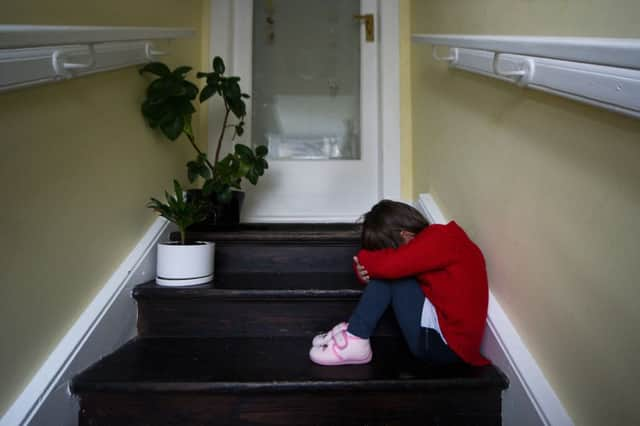Elaine Torrance: Social work all about forging connections


This week we will have around 350 delegates keen to listen, learn, contribute and be enthused and challenged. We are a profession that knows the value of learning and reflection.
In Scotland, the social work profession is made up of 11,000 qualified social workers, working within the broader social care sector made up of 200,000 social services workers. We support, advise and care for many thousands of men, women, children and families facing difficult challenges every day.
Advertisement
Hide AdAdvertisement
Hide AdAt times we get a bad press and at times we are held wholly responsible for the actions of others. This cannot be the case. Sometimes we recognise that it is difficult to judge the balance between rights and risks, but when there are lessons to be learnt we will reflect and learn.
But most of the time we get things right. We help people to live the lives they want without harming themselves or others. We respect and value the choices people make and we make no judgment – we accept individuals. The world needs social workers, more than at any other time.
We need social workers to make sure that any additional resources for mental health are used to focus on the social needs as well as the medical options for supporting people who experience mental health difficulties.
We need social workers to make sure that relationship-based work with families and a focus on neglect is maintained and we resist the temptation to continually restructure and re-draft procedures or guidance on child protection as we deal with the tragic death of a child at the hands of his or her parent or carer.
We need social workers to make sure that unaccompanied refugee children get the help they need. Not the cheapest option, not the easiest option, but the option that supports them to feel safe and to settle.
We need social workers to make sure that we only detain people who are a danger to others and that we find better ways to supporting those who have offended to not offend again and to turn their lives around.
We need social work to make sure that integration is not totally focused on getting people out of hospital quickly, but is able to provide quality home care with the right staff, with the right qualifications and experience in the right places to support our older population to live at home, independently.
We need social workers to make sure that the legislation on self-directed support does not become another set of processes, but is seen as the bed rock of social work practice: supporting people to manage their own lives the way they want to.
Advertisement
Hide AdAdvertisement
Hide AdPerhaps, most of all, we need social work because social work will always recognise that none of these things can be done by social work alone.
The focus of this conference is on partnership and making a difference together. That is social workers together with GPs, police, nurses, health visitors, occupational therapists, prison staff, civil servants, carers, parents, families and people themselves. Social work is all about seeing and making the connections.
In order to do that, leadership is key. True leadership comes from knowing your purpose and focussing on what needs to be done and who is best to do it, in order to achieve it. We have a new look to our leadership in social work, with many more women coming into key roles. That is to be celebrated for the fresh approach and balance it brings to the sector.
But leadership comes at all level and across all genders. It is not one person or one team. It is everyone’s role and I will challenge all our delegates to embrace their role as leaders. We all have our reasons for entering the profession often based on life experiences and events that have shaped us as people: health, parental divorce, family bereavement and the places we grew up.
And because these are often part of the same experiences people who need our support are also going through, we can begin to understand and help them.
My message to all social care professionals is clear. Never forget who you are, why you are here and what you bring – Scotland needs you.
• Elaine Torrance is President of Social Work Scotland, www.socialworkscotland.org